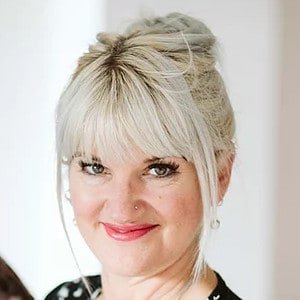Emotions
Managing our emotions

By Karen Forshaw
GP Doncaster (Yorkshire & the Humber)

By Chrisssie Mowbray
Chartered Physiotherapist (Yorkshire)
As Healthcare Professionals (HCP) we are quite rightly, conscious of the emotions of our patients. We recognise when people are upset or afraid and that in such a state, they may say things that they do not mean. We try not to take offense. Sometimes patients are abusive, and we excuse their poor behaviour and make allowances because of the circumstances. Our own emotions, however, are often overlooked. At work, we are not allowed to get upset. We are not allowed to be rude, and we are not allowed to be angry. In addition, patients often complain if an HCP appears unemotional – they equate this with them being uncaring. Ultimately, we are expected to be happy, caring and full of compassion for our patients regardless of what is happening in our own lives.
In reality, HCPs are human beings just like everyone else and we experience lots of feelings, sometimes too many. We work in highly stressful environments and are expected to balance the feelings of others on a daily basis. Failing to acknowledge our own feelings and leaving them unprocessed can be very damaging. It can lead to us turning to alternative unhealthy coping mechanisms. The hugely inflated rates of alcoholism and suicide in HCPs reflect this.
www.resilientpractice.co.uk shares a large number of diverse tools and techniques to get you started. Click the button below.
Our emotions are a product of our experiences. They are created by our brain when we need them.
When neurons in our brain fire, certain neurotransmitters are released. These neurotransmitters act on various parts of the brain and other organs stimulating the release of more chemicals which drive physiological changes in the body. These physical changes create the feelings that we associate with emotions. The churning of the stomach when anxious, the racing heart when afraid, the feeling of ‘lowness’ associated with sadness and the feeling of contentment when happy. These chemical, physiological and emotional changes go on to prompt certain behaviours.
For example:
Our practice manager asks if they can “have a word.” They then inform us that we have received a complaint. Thinking about what is to come and imagining the consequences triggers our most basic survival instinct the fight-flight response. Neurotransmitters are released which activate our sympathetic nervous system. Adrenaline and cortisol flood our blood stream. In response to the adrenaline our heart rate increases, our respiratory rate follows suit and we become sweaty and breathless. The cortisol down regulates the gastrointestinal system and this in combination with the excess adrenaline makes us feel sick. We feel upset and anxious. We become distracted and snappy, our memory is impaired as is our judgement. We avoid others at lunch and feel put upon if asked to do anything. We spend much of the time that follows ruminating about the event and imagining consequences. At times like this we wonder if we are in the right job.















When we hear that we have a thank you card, we remember our patient fondly and imagine telling our peers and family about this affirmation of our worth. Our neurons release dopamine and serotonin creating a warm feeling of contentment. We feel happy confident and assured. We are chatty at lunch and happy to help others. At times like these we are sure we are in the right job.
Our thoughts, feelings and behaviours all interact triggering and driving cognitive behavioural cycles either positive or negative. Understanding this is the basis of Cognitive behavioural Therapy (CBT) and it gives us great power to intervene for ourselves. Rather than assuming that we are at the mercy of our thoughts and feelings we can, instead learn how to influence them. We can reframe negative thoughts and going further, we can reframe the underlying core beliefs that influence those thoughts. We can challenge the distorted thinking patterns that drive our negative cognitive behavioural cycles.
To learn how to do this follow the links below:
- How to Reframe Fearful Thoughts
- How to Reframe Core Beliefs through Affirmation
- How to Challenge Distorted Thinking
Making our thoughts, feelings and responses conscious rather than automatic is hugely empowering and makes us more resilient in all aspects of work and life.

